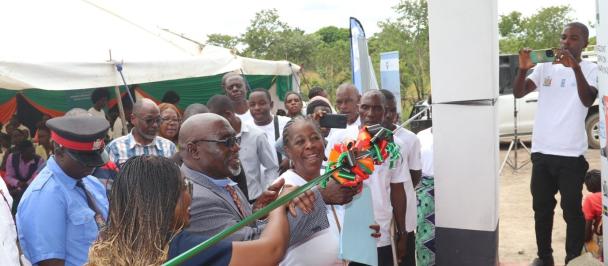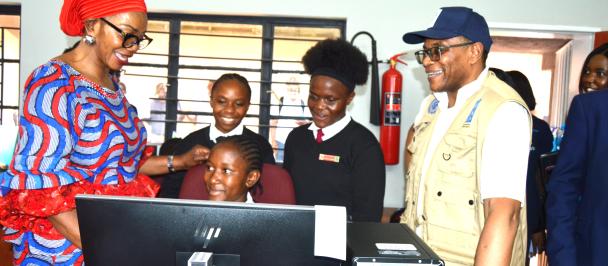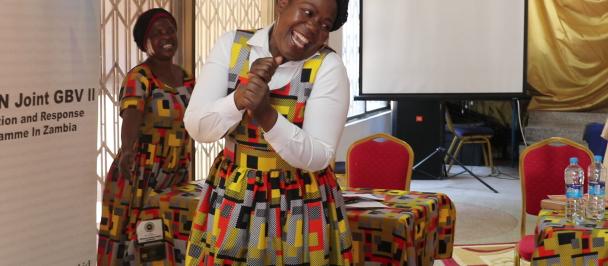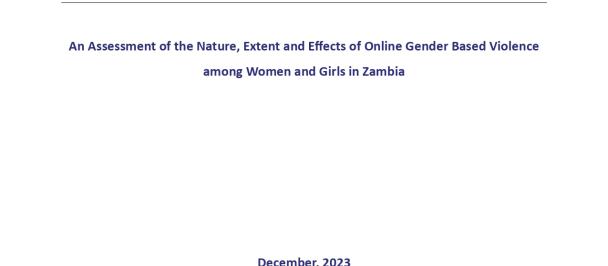State of Online GBV in Zambia Revealed in a Study Report
Minister of Technology and Science has Called for Increased Capacity Building Initiatives for Law enforcement Agencies to Handle Online Gender-Based Violence
December 27, 2023
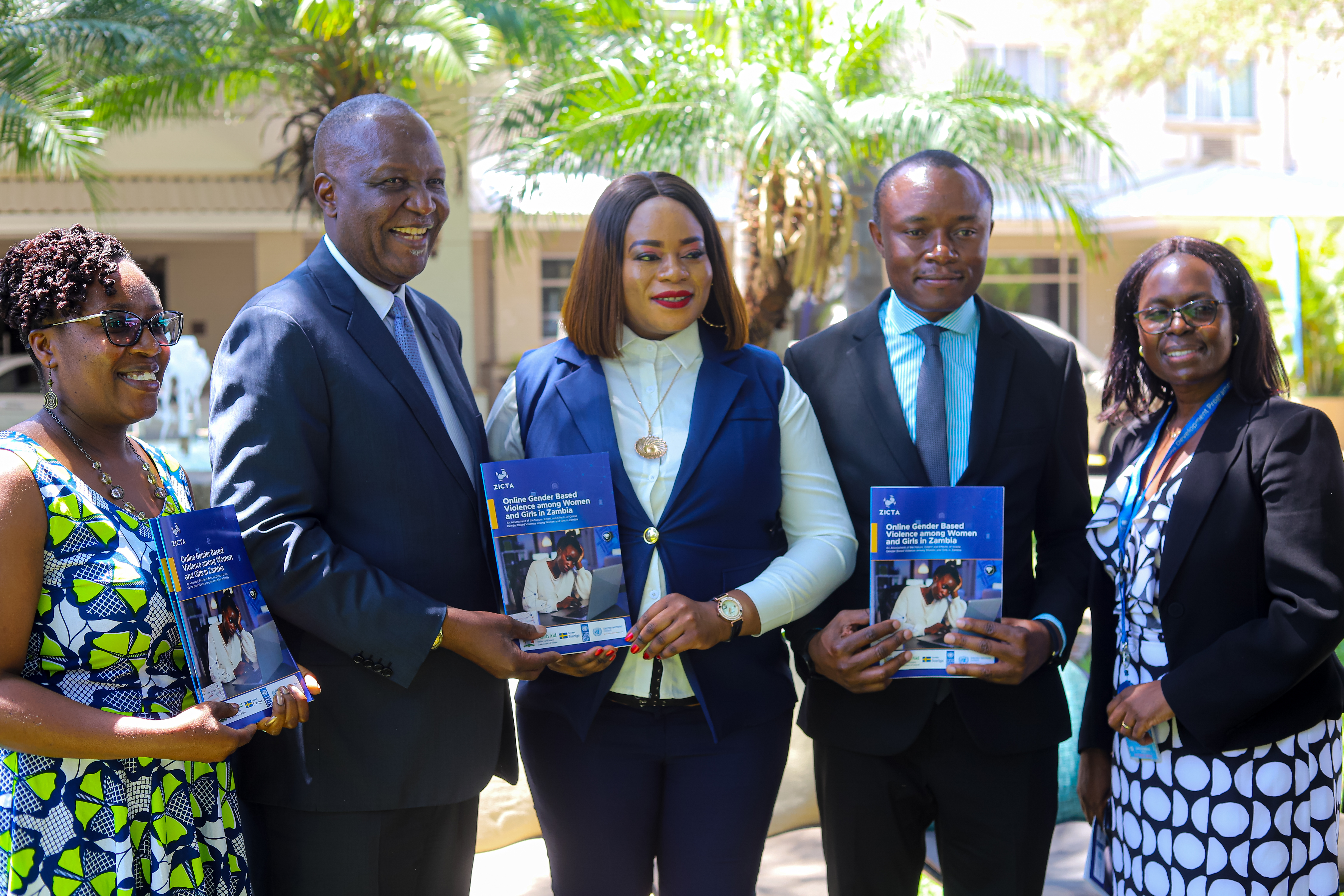
From Left: Janet Mwaba YWCA Regional Coordinator, Ms Malala Mwondela Programme Manager from Embassy of Sweden, Honourable Minister of Technology and Science, Felix Mutati, Online GBV Survivor Ms Chileshe Mutale, UNDP Assistant Resident Representative & Governance & Gender Advisor Greg Saili and GBV Programme Manager Shupe Makashinyi
The Minister of Technology and Science, Honourable Felix Mutati has called for capacity building programmes to equip law enforcement agencies and the Judiciary to handle reported cases of Online Gender-Based Violence (OGBV) efficiently and effectively. Honourable Mutati expressed concern that without adequate capacity, law enforcement agencies could be a source of increased distress and farther the severity of the effects of OGBV.
He said this during the launch of the Study Report on Online Gender-Based Violence among Women and Girls in Zambia, whose study was facilitated by ZICTA with technical support from the United Nations Development Programme (UNDP) as part of the GRZ-UN Joint Programme on GBV Phase II. The Study and its Report were made possible with financial support from the Governments of Ireland and Sweden.
The findings from the survey confirm the growing trend in usage of mobile phone services which not only serve as a means of communication but also an avenue for various OGBV risks such including sextortion, extortion, online harassment, hate speech and dissemination of obscene material.
The survey report has established that the proportion of males to females owning mobile phones was higher and thus correlated to the finding that there are more males aware of the risks associated with being online than females.
The report states, “in 2022 males accounted for 54.4 percent of the individuals that had access to internet services and were aware of risks associated with online activities while the females accounted for 45.6 per cent. This means that women and girls are likely to be victims of online risks owing to the limited awareness on the existence of such risks”.
The most prevalent risks identified by internet users above 10 years that were aware of online risks included fake news, adult pornography and scams accounting for 94.9 percent, 90.1 percent, and 83.7 percent respectively.
Exposure to fake news and scams were the most prevalent incidents that individuals aged 10 years and older with access to internet encountered while online. Specifically, 78.4 percent of the internet users aged 10 years and older that indicated that they were aware of online risks had been exposed to fake news, while 60.0 percent had been exposed to scams. Further, about 47 percent of internet users that were aware of the risks related to cyber bullying while online.
Chileshe Mutale, a victim of OGBV denounced cyber-bullying as a vice that can cause mental health concerns including suicidal thoughts and loss of confidence. She said, “I was devastated, I was depressed, I was so drained. The comments were so bad. I was body shamed. I was bullied and humiliated.”
Narrating the genesis of her ordeal, Chileshe praised ZICTA under the UN Joint Programme on GBV for the role it played in reinvigorating her self-esteem and called for an end to body shaming.
In his concluding remarks, the Minister spotlighted the need for capacity building for law enforcement agencies to protect victims and ensure perpetrators are dealt with according to the Cyber-Security Law.
The Study Report on Online Gender Based Violence among Women and Girls in Zambia is part of a broader GRZ-UN Joint Programme on GBV phase II, which is a multi-partner programme designed to reduce the prevalence of GBV cases in Zambia. It is envisioned that by improving prevention and response strategies that focus on strengthening existing institutional structures, comprehensive and multi-sectoral services will be provided. The overall phase II GRZ_UN Joint Programme focuses on prevention and response at sub-national and national level.
UNDP works alongside other UN agencies (UNICEF, UNFPA, IOM and ILO) to fulfill provision of a comprehensive anti-GBV package.

 Locations
Locations
